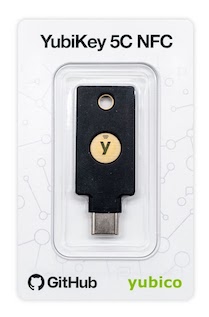We’ve invested a lot in making sure that GitHub’s developer communities have access to the latest technology to protect their accounts from compromise by malicious actors. Some of these investments include verified devices, preventing the use of compromised passwords, WebAuthn support, and supporting security keys for SSH Git operations. These security features make it easier for developers to have strong account authentication on the platform, and today, we’re excited to share a few updates in this area.
No more password-based authentication for Git operations
In December, we announced that beginning August 13, 2021, GitHub will no longer accept account passwords when authenticating Git operations and will require the use of strong authentication factors, such as a personal access token, SSH keys (for developers), or an OAuth or GitHub App installation token (for integrators) for all authenticated Git operations on GitHub.com. With the August 13 sunset date behind us, we no longer accept password authentication for Git operations.
Enabling two-factor authentication (2FA) on your GitHub account
If you have not done so already, please take this moment to enable 2FA for your GitHub account. The benefits of multifactor authentication are widely documented and protect against a wide range of attacks, such as phishing. There are a number of options available for using 2FA on GitHub, including:
- Physical security keys, such as YubiKeys
- Virtual security keys built-in to your personal devices, such as laptops and phones that support WebAuthn-enabled technologies, like Windows Hello or Face ID/Touch ID
- Time-based One-Time Password (TOTP) authenticator apps
- Short Message Service (SMS)
While SMS is available as an option, we strongly recommend the use of security keys or TOTPs wherever possible. SMS-based 2FA does not provide the same level of protection, and it is no longer recommended under NIST 800-63B. The strongest methods widely available are those that support the emerging WebAuthn secure authentication standard. These methods include physical security keys as well as personal devices that support technologies such as Windows Hello or Face ID/Touch ID. We are excited and optimistic about WebAuthn, which is why we have invested early and will continue to invest in it at GitHub.
Commit verification with your security key
After securing your account with a security key, there’s more you can do with them. You can also digitally sign your git commits using a GPG key stored on your security key. Here is a detailed configuration guide for setting up your YubiKey with GitHub for commit verification and for SSH-based authentication. We’ve also partnered with Yubico to create a step-by-step video guide to help you enable your security key for SSH keys and commit verification.
Getting a security key
 Lastly, in 2015, we announced our support of Universal 2 Factor Authentication and created GitHub branded YubiKeys to mark the occasion. We thought it was fitting for this moment to make another batch with Yubico. As we continue our efforts to secure GitHub and the developer communities that depend on it, we are once again offering branded YubiKey 5 NFC and YubiKey 5C NFC keys! Get yours while supplies last at The GitHub Shop.
Lastly, in 2015, we announced our support of Universal 2 Factor Authentication and created GitHub branded YubiKeys to mark the occasion. We thought it was fitting for this moment to make another batch with Yubico. As we continue our efforts to secure GitHub and the developer communities that depend on it, we are once again offering branded YubiKey 5 NFC and YubiKey 5C NFC keys! Get yours while supplies last at The GitHub Shop.

Written by
Mike Hanley is the Chief Security Officer and SVP of Engineering at GitHub. Prior to GitHub, Mike was the Vice President of Security at Duo Security, where he built and led the security research, development, and operations functions. After Duo’s acquisition by Cisco for $2.35 billion in 2018, Mike led the transformation of Cisco’s cloud security framework and later served as CISO for the company. Mike also spent several years at CERT/CC as a Senior Member of the Technical Staff and security researcher focused on applied R&D programs for the US Department of Defense and the Intelligence Community.
When he’s not talking about security at GitHub, Mike can be found enjoying Ann Arbor, MI with his wife and eight kids.





